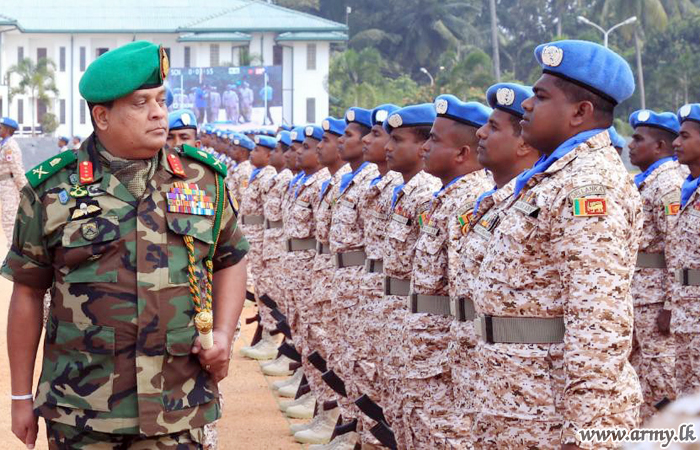
Eleven years since Mullivaikal, the end of Sri Lanka’s armed conflict in which tens of thousands of Tamils were massacred by the military at the behest of the state authorities, Sri Lanka is no closer to delivering transitional justice to the Tamil people or bringing war criminals to justice, writes Professor Kate Cronin-Furman, in the Foreign Affairs magazine.
“In its rush to celebrate Sirisena’s election as the dawn of a new democratic era in Sri Lanka, international actors facilitated the entrenchment of impunity and squandered a chance to protect vulnerable people,” writes Cronin-Furman.
Whilst the previous government led by Sirisena put up a veneer of commitment towards ensuring accountability, the current Rajapaksa administration with their “unassailable mandate for their Sinhala-Buddhist nationalist politics and militaristic governing style spells disaster for human rights in Sri Lanka,” she adds.
Sirisena’s charade of commitment to human rights
Whilst the election of President Maithripala Sirisena aroused expectations that his government would take Sri Lanka along liberal lines and promised several progressive measures towards that end, “ultimately it did almost none of this,” the author notes. As Sirisena failed to uphold his commitment to human rights and accountability, Western willingness to engage with his administration stepped up.
The author writes,
“The United States and other Western countries increased military assistance to Sri Lanka’s wholly unvetted security sector. The European Union restored a preferential trade tariff in 2017, despite Sri Lanka’s failure to meet previously imposed human rights conditions, such as the repeal of the draconian Prevention of Terrorism Act. Sri Lanka even received multiple honors for its contributions to UN peacekeeping operations despite evidence that security sector personnel implicated in wartime abuses were being deployed to missions in Haiti, Lebanon, Mali, South Sudan, and Darfur.”
Sirisena meanwhile assured his vote base that he would never allow investigations into the country’s “war heroes”. The piece argues that his government’s disingenuous commitment to human rights and justice did little to change the international community’s favourable stance towards his regime.
War criminals in important posts
The article goes on to note that army officers implicated in war crimes and the genocide of the Tamils continued to be appointed to positions in the high echelons of the security services. Sarath Fonseka, the army commander who admitted to committing war crimes under Gotabaya Rajapaksa’s orders, was appointed field marshal. Other associates of Fonseka and army officers who had a record of torturing remain unpunished.
Cronin-Furman adds,
“His (Fonseka’s) former subordinate, Shavendra Silva, himself credibly accused of ordering atrocities, was promoted first to army chief of staff and then to commander of the army. Sisira Mendis, who ran a notorious torture center, was appointed chief of national intelligence and, remarkably, represented Sri Lanka at a session of the UN Committee Against Torture in 2016”.
Culture of impunity
The piece argues that the reluctance of the international community, especially Western powers, to push for decisive action against the human rights violations and other atrocities in the island contributed to the development of a culture of impunity.
“Military control of the former war zone in the northeast of the country allowed security forces to destroy evidence of atrocities and intimidate witnesses,” adds Cronin-Furman. “Even as this was happening, most international actors stressed top-line transitional justice agenda items, such as criminal trials and the removal of high-level perpetrators from office.”
The author argues that the stance the West has adopted towards Sri Lanka weakened the hand of internal actors calling for human rights and further normalised an environment of impunity.
“International actors should have tried to obstruct the passage of legislation that constrained civil society, protested the use of state media to shape public attitudes in favor of impunity, encouraged the dismantling of intelligence networks at the ground level, and supported information security training for human rights workers.”
A sinister Rajapaksa regime
The essay notes that commitment towards human rights and accountability is likely to fade precipitously under the present Rajapaksa government and points to the growing militarisation of the Tamil homeland and the prospect of an ‘unfettered presidency’ if the 20th amendment was passed.
Furthermore, Cronin-Furman also points to the growing climate of censorship and suppression of Tamil voices in the political arena. “In the northeast, escalating prohibitions on memorializing those lost in the war and the harassment of families of the disappeared compound the climate of militarization and surveillance that the Tamil community has endured since the end of the war,” she adds.
Commenting on the Rajapaksa administration’s withdrawal from a UNHRC resolution to ensure justice in the island and his other retrograde steps such as granting pardon to an army officer convicted of war crimes, the essay writes the following:
“These developments are devastating, but they were foreseeable. And the failure of international actors to take meaningful action has only pushed justice further out of the reach of the victims of atrocities in Sri Lanka.”
Read the full essay at Foreign Affairs Magazine here.
We need your support
Sri Lanka is one of the most dangerous places in the world to be a journalist. Tamil journalists are particularly at threat, with at least 41 media workers known to have been killed by the Sri Lankan state or its paramilitaries during and after the armed conflict.
Despite the risks, our team on the ground remain committed to providing detailed and accurate reporting of developments in the Tamil homeland, across the island and around the world, as well as providing expert analysis and insight from the Tamil point of view
We need your support in keeping our journalism going. Support our work today.
For more ways to donate visit https://donate.tamilguardian.com.

